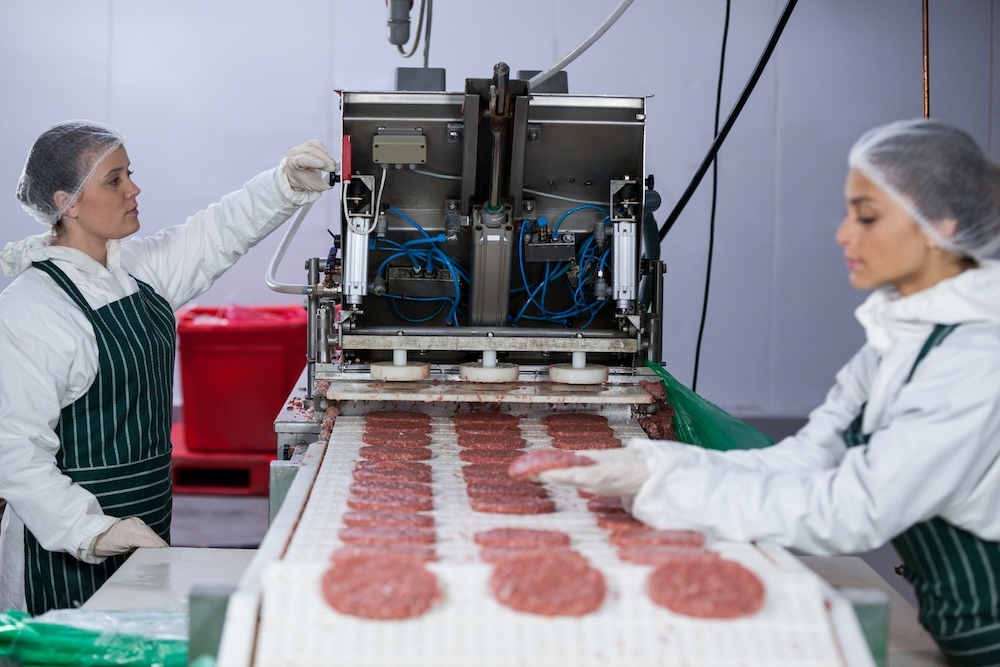Meat production is one of the most resource-intensive systems in the global food chain. While it provides protein and nutrients for billions, the environmental costs are immense — from deforestation and water scarcity to greenhouse gas emissions and biodiversity loss. Addressing the impact of meat production is no longer optional; it is essential for a sustainable future.
Why Meat Production Carries Such a Heavy Footprint
Deforestation and Habitat Loss
The expansion of pastureland and feed crop production, particularly soy and corn, is a leading cause of deforestation. Forest clearing not only destroys biodiversity-rich ecosystems but also releases vast amounts of stored carbon into the atmosphere, accelerating climate change.
Greenhouse Gas Emissions
The livestock sector contributes significantly to global greenhouse gases:
- Methane from ruminant digestion (cows, sheep, goats) is over 25 times more potent than CO₂ in warming the atmosphere.
- Nitrous oxide from manure and fertilizers has nearly 300 times the warming potential of CO₂.
Combined, livestock emissions rival those from the entire transportation sector.
Water Pollution and Scarcity
Manure runoff, synthetic fertilizer use, and pesticides used for feed crops contaminate rivers and groundwater. Nutrient pollution contributes to algal blooms and dead zones, devastating aquatic life and threatening drinking water supplies.
Energy Use and Food Miles
The global meat supply chain involves feed production, animal transport, slaughter, processing, packaging, and shipping. Each stage consumes energy, and long-distance transport adds to the carbon footprint.
Pathways to Reducing Meat’s Environmental Impact
Regenerative Agriculture
By restoring soil health and biodiversity, regenerative grazing and rotational systems can help sequester carbon, reduce erosion, and improve water retention. These methods work to repair ecological cycles rather than deplete them.
Reduced Chemical Inputs
Transitioning away from heavy reliance on synthetic fertilizers and pesticides lessens water contamination and supports soil biodiversity. Practices like integrated pest management, organic fertilization, and polyculture cropping systems contribute to healthier ecosystems.
Shifting Diets Toward Plant-Based Options
One of the most effective strategies is simply reducing meat consumption and incorporating more plant-based foods. Beans, lentils, nuts, and whole grains provide protein with far fewer environmental costs. A dietary shift at scale could free land, reduce emissions, and conserve water.
Embracing Innovation in Alternatives
Plant-based proteins and fermentation-based foods are evolving rapidly. While not a perfect solution on their own, these innovations can provide familiar textures and flavors while reducing dependence on animal-based protein.
Why Urgency Matters
Global demand for meat is projected to continue rising. Without intervention, this growth will accelerate climate change, water crises, and biodiversity collapse. The choices made in the next decade will shape the resilience of food systems for generations.
Conclusion
The environmental impact of meat production spans deforestation, greenhouse gas emissions, water pollution, and resource depletion. Addressing it requires a multi-layered approach: sustainable farming practices, reduced chemical inputs, dietary shifts, and continued innovation in food alternatives.
Every action — whether at the farm, in government policy, or on our dinner plates — contributes to shaping a more sustainable future. The urgency cannot be overstated: tackling the meat production crisis today is essential to safeguarding ecosystems, stabilizing the climate, and ensuring food security for tomorrow.








